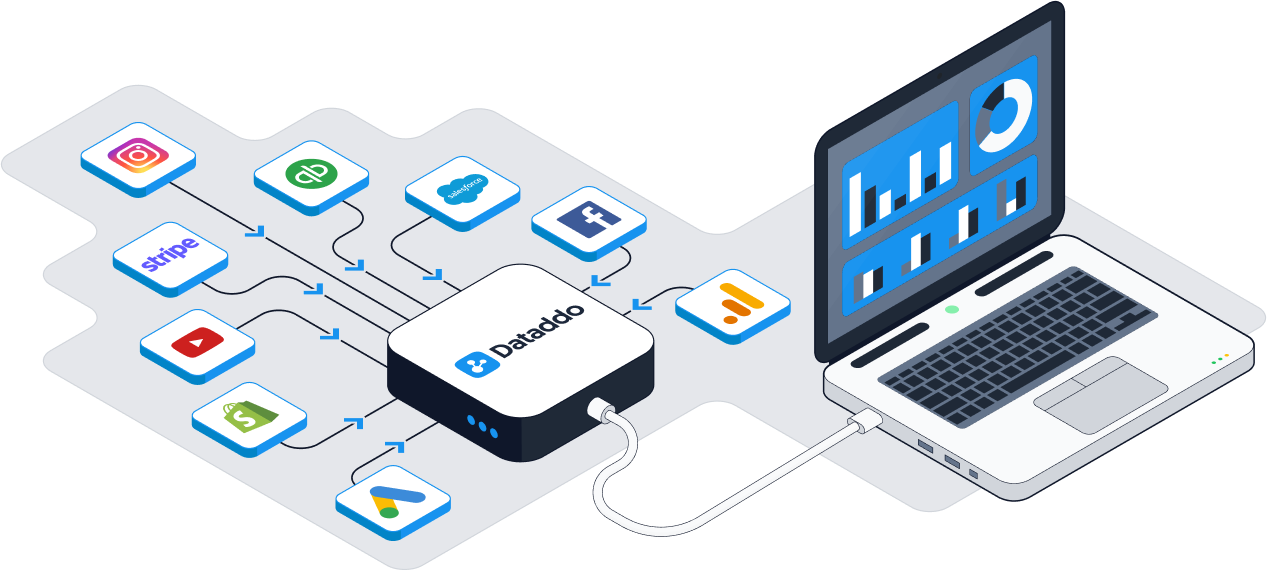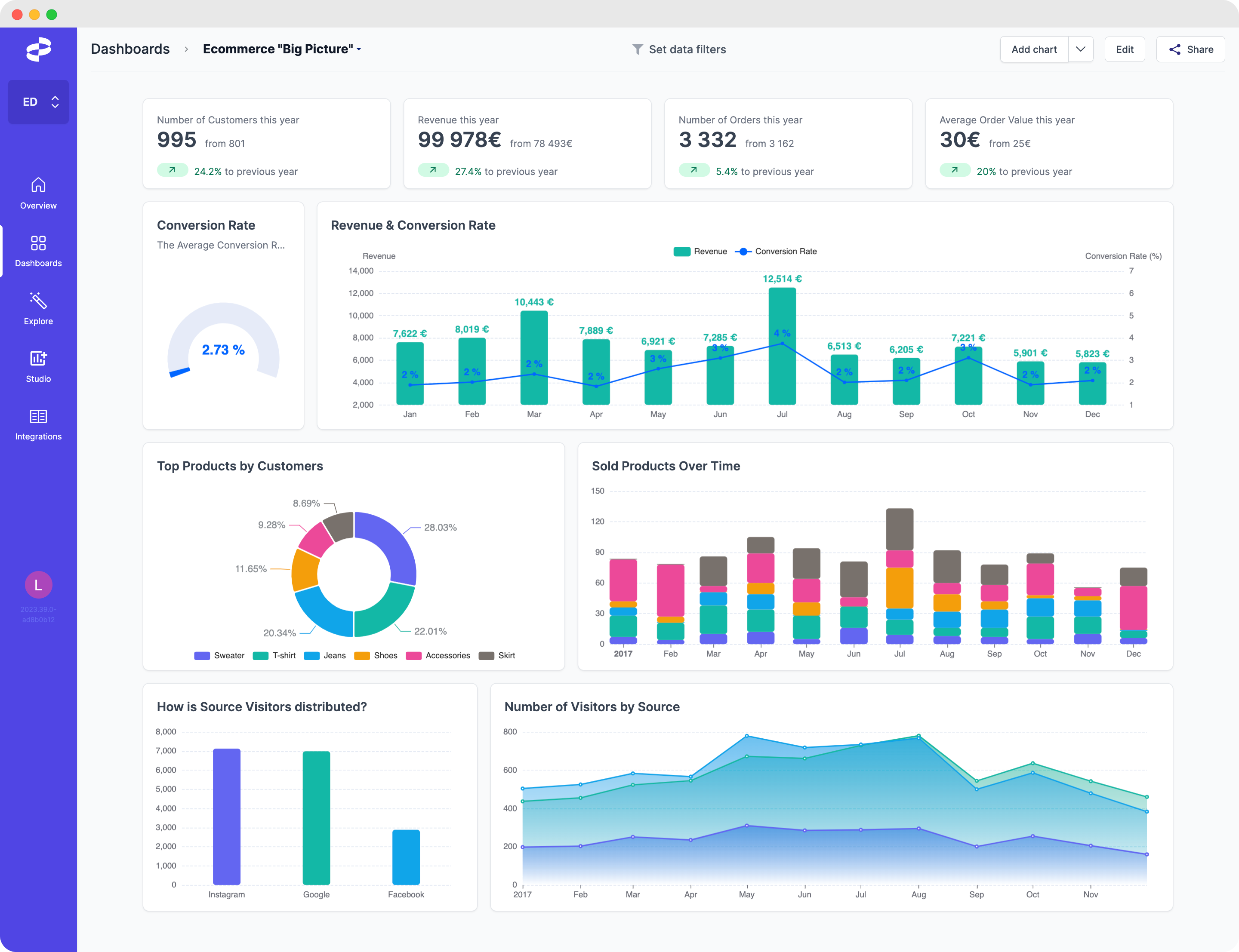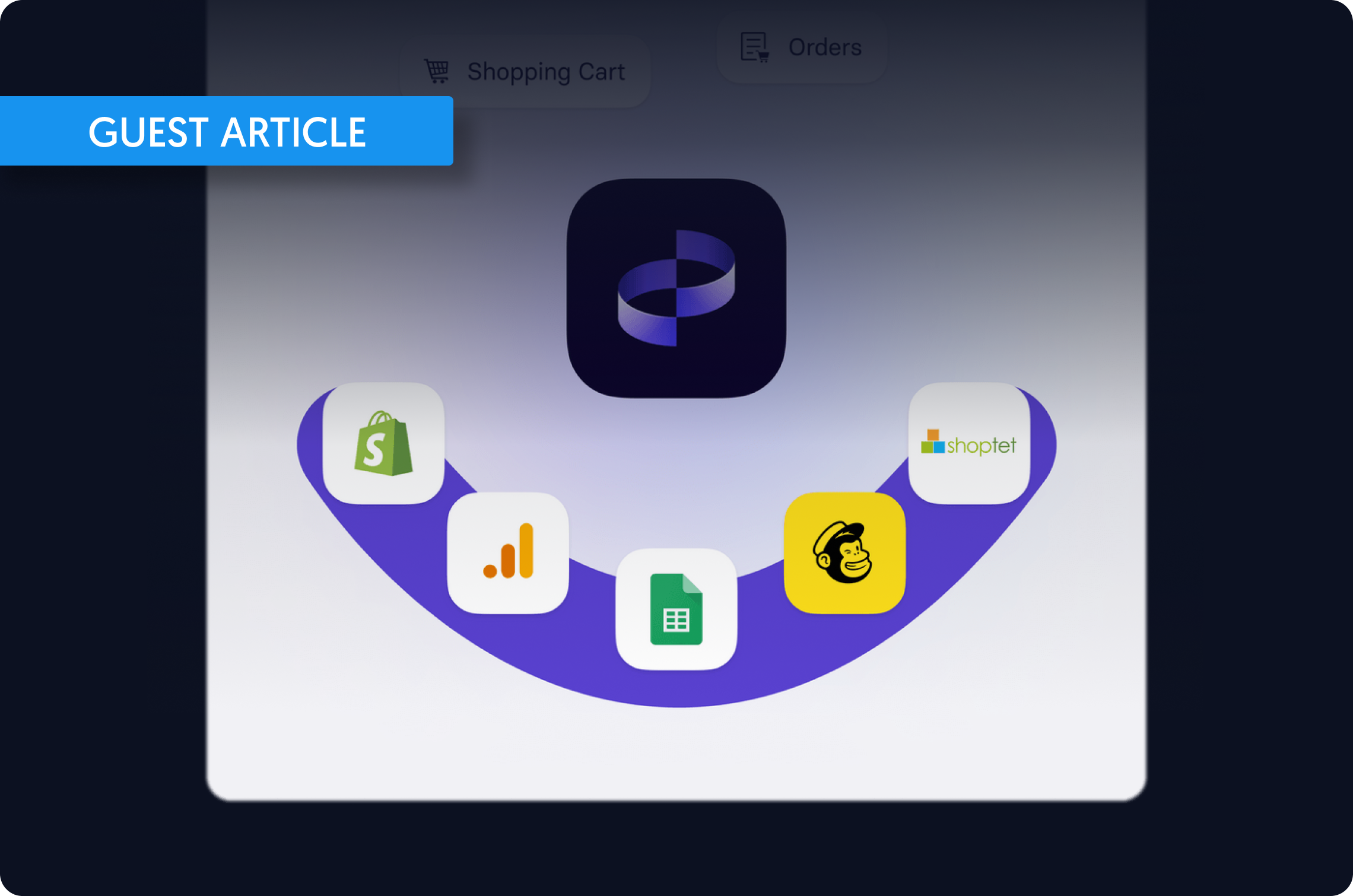This is a guest article by BinarBase—an AI-powered ecommerce growth platform.
Ecommerce is a powerhouse industry whose meteoric rise has brought about intense competition and ever-evolving customer expectations. Customers now more than ever value convenience and personalization from their love brands. With the help of data, firms can give them just that. But, first, data from different tools needs to be brought together and analyzed.
In this article, we will talk about the role of data integration in ecommerce, why traditional, “human-powered” data analysis tools are beginning to lose relevance, and how AI-based solutions are becoming the best way for ecommerce companies to generate profitable insights from integrated data.
The Role of Data Integration in Ecommerce
So, you have an eshop, a payment platform, a few online marketing platforms, and other data-generating tools that make your business run. Many of these tools probably have built-in visualization functionality which is sufficient for basic data analyses.
But what if you want to, for example, combine data from your marketing platforms with behavioral data from your eshop and payment data from your payment platform? This would help you determine whether a certain ad attracted someone to your website, what they did on your website, and if they eventually made a purchase.
To get this advanced insight, you could, of course, manually export the data from these tools and combine it in, let’s say, a Google or Excel spreadsheet. But this takes significant time, and it must be repeated every time you want updated data. Plus, manually extracting and combining data from different tools is prone to human error, especially when working with larger volumes of data.
The best way to reliably combine all your data is therefore to use a data integration tool like Dataddo. This will ensure that all your data gets to your dashboard or other insight-generation platform automatically and at regular intervals, without the risk of human error.

Traditional BI Tools in Ecommerce: Losing Gound?
Data integration is an essential part of the battle for advantage in ecommerce. But to actually get insights from data, you need a business intelligence (BI) or other insight-generation tool that can gather, process, and present historical data in a comprehensible and visually appealing manner.
Analysts and data scientists use these tools to perform exploratory data analysis (EDA) to identify patterns in customer data. For example, they can discover that customers who buy a particular brand of shoes are more likely to also purchase a specific type of socks.
Many analysts and data scientists will instinctually seek a traditional BI tool for visualizing data and gleaning insights. Traditional BI tools offer many benefits, but, in the light of the recent AI boom, their drawbacks are becoming increasingly clear. Here is a closer look:
Benefits of Traditional BI Tools:
- Data visualization: BI tools excel in creating intuitive dashboards and reports, making it easier for non-technical users to understand complex data.
- Historical analysis: They are well-suited for historical data analysis, helping businesses identify long-term trends and performance metrics.
- Data governance: BI tools often have robust data governance features, ensuring data accuracy and compliance with regulations.
Drawbacks of Traditional BI Tools:
- Lack of real-time insights: Traditional BI tools are not designed for real-time analytics, which can be a significant limitation in the world of ecommerce.
- Limited predictive abilities: BI tools typically lack the advanced predictive and prescriptive capabilities that AI can offer.
- Manual data manipulation: Using traditional BI tools often involves manual data manipulation and report generation, which can be time-consuming.
- Complexity and cost: Implementing and maintaining traditional BI tools can be complex and expensive. The costs associated with software licenses, hardware, and skilled personnel can strain the resources of small to mid-sized ecommerce businesses.
- Learning curve: Traditional BI tools often require extensive training to be used effectively. Analysts need to invest time in learning how to create reports, dashboards, and perform data analysis, which can hinder productivity initially.
Considering the drawbacks of traditional BI tools, ecommerce companies that want to use data and analytics to their greatest advantage should consider an AI-based growth platform.
BinarBase: Applying AI Technology to Integrated Data
BinarBase, an AI-driven ecommerce growth platform, changes the way businesses extract information from data sources. It expedites data evaluation, sparing valuable time for growth-focused activities, and replaces the need for numerous data applications that demand specialized technical expertise. The platform empowers non-technical business users to generate insightful reports and personalized recommendations in real time.
Key features of BinarBase:
- Easy connection of more than 250 data sources
- Real-time dashboards
- No coding required
- No need to employ data analysts
- AI-driven recommendations based on your data
- Predictive analytics for forecasts of sales, revenues, and marketing costs
Ecommerce companies will appreciate the platform’s customer segmentation capabilities, which categorize customers by the types of products they frequently purchase. Indeed, knowing customers' preferred product categories enables them to personalize product recommendations, target promotions, and reward loyal customers with exclusive offers, early access to sales, and other incentives.

By combining all sources of data, BinarBase acts as a single source of truth (SSOT) for ecommerce businesses, and saves them time and money by automating core tasks.
Why Use AI for Ecommerce?
AI-driven predictions are not merely a luxury, but a necessity for staying ahead in the highly competitive online marketplace. They encompass inventory management, pricing optimization, fraud prevention, and more. As AI technology continues to advance, those who leverage it effectively will be better positioned to thrive in the world of online retail.
Here are some of the tangible benefits AI can bring to ecommerce companies:
- Enhanced personalization
One of the primary advantages of employing AI in ecommerce is the ability to deliver hyper-personalized experiences to customers. Algorithms analyze customer data, including browsing history, purchase behavior, and demographics to create tailored product recommendations. AI suggests products that are more likely to resonate with each customer.
- Predictive analytics for inventory management and seasonal products
AI algorithms can forecast demand patterns and inventory turnover, enabling businesses to optimize their supply chain. By accurately predicting which products will be in high demand during specific periods, companies can reduce overstocking, minimize stockouts, and ultimately improve profit margins. This level of precision in inventory management is difficult to achieve through manual processes alone.
- Dynamic pricing strategies
AI is helpful when implementing dynamic pricing strategies that respond to market fluctuations and customer demand. Algorithms adjust prices based on factors like competitor pricing, supply and demand, and historical sales data. This ensures that ecommerce businesses remain competitive and still earn profit.
- Customer lifetime value (CLV) prediction
Understanding CLV is crucial for long-term business success. AI models can predict the potential value of each customer based on historical data, enabling businesses to tailor their marketing and retention efforts accordingly. This approach fosters customer loyalty and increases revenue over time.
- Inventory forecasting and management
AI algorithms can analyze historical sales data, seasonal trends, and external factors to make accurate inventory forecasts. This not only reduces excess inventory and storage costs but also ensures that popular items are always in stock, improving customer satisfaction and sales.
Staying Ahead of the Curve
In summary, ecommerce companies that want to stay ahead of the curve should be investing in two types of tooling:
This will enable them to give customers just what they want, just when they want it, for a price that’s competitive, yet profitable.
|
Connect All Your Data with Dataddo Just a few quick steps to get your data to your dashboard for better analysis, without the hassle. |




Comments